OP Sequence
 |
 |
 |
 |
 |
 |
OP: 「Poi」 by (Saucy Dog)
 |
 |
 |
 |
 |
 |
 |
 |
 |
 |
 |
 |
 |
 |
 |
 |
 |
 |
 |
 |
 |
 |
 |
 |
 |
 |
 |
 |
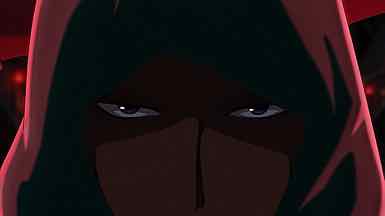 |
 |
 |
 |
 |
 |
 |
 |
 |
 |
 |
 |
 |
 |
 |
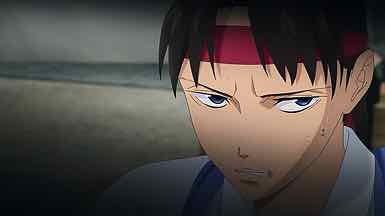 |
 |
 |
 |
 |
 |
 |
 |
 |
 |
 |
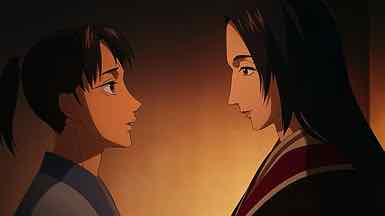 |
 |
 |
 |
 |
 |
 |
 |
 |
 |
 |
 |
 |
 |
 |
 |
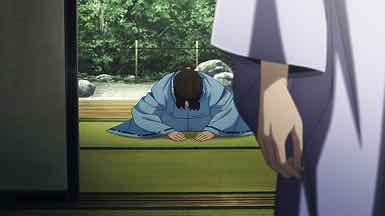 |
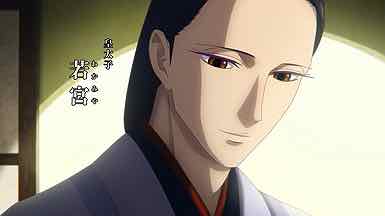 |
「場違いな姫君/ぼんくら次男」 (Bachigaina Himegimi/ Bonkura Jinan)
“Princess Out of Place/Bonkura Second Son”
If I had to pick the most underrated studio in anime, I’m pretty sure it would be Pierrot. The general attitude towards them seems to range from ignored to derided. But Pierrot has had more series in my yearly Top 10 lists than any other studio, and there’s a reason for that. When Pierrot adapts, they usually get the most important stuff right. Their adaptations are faithful in tone and substance, even if not generally lavish in terms of production values. And they tend to wind up on considerably better than average projects too. That’s not surprising, as I think they represent a safe and relatively economical pair of hands to a production committee that has someone who actually cares about the source material (as better source material is more likely to have).
That brings us to Karasu wa Aruji o Erabanai. The source material is a series of not-light fantasy novels by Chisato Abe. And for a series with which I don’t know the source material, just about every one of my sleeper senses was at maximum tingle. Novels can be tremendous sources for anime, it’s seinen, we have a terrific cast (including Irino Miyu in a rare these days lead role) an up-and-coming young director, and high fantasy is something Pierrot really knows their way around. Basically all signs were pointing to yes.
That made the inexplicable delay in streaming rather irritating. The series premiered on NHK last week, but wasn’t streamed until today, and no fansub group picked it up. So we got two episodes for the “premiere”, and on balance they were worth the wait. The only niggle I have is that the first was too heavy with exposition by explanation, always a pet peeve of mine. I get the need for some of that, as this is obviously a pretty intricate premise. Apart from that though, Karasu wa Aruji o Erabanai is everything I was hoping it would be – atmospheric, intriguing, and fully engaging right from the opening bell.
After a cold open which introduces the two main players, the premiere jumps to a collection of secondary characters. The setting is the land of Yamauchi, which is ruled by the Kin’U – the Golden Raven. At the moment he appears to be declining, if the way his hand shakes when playing Go is any indication. The attention of the court is focused on the selection of a consort for the crown prince. In Yamauchi the Center is the land of royalty, and the rest of the country is divided into four cardinal regions. Each of them sends a princess to compete for the Crown Prince’s hand, a year-long process of political infighting and bickering that any sane person would want to avoid.
There are complicating issues with the Crown Prince. He’s a second son, born to a concubine, while his elder brother – much loved and admired – was birthed by the Empress. The high priests chose the second son to succeed the throne (there are hints he has intense magical abilities) and, after a power struggle, the elder brother was forced to become a priest. The younger is widely whispered to be not right in the head and is loathed by the Empress. It’s she who names the maidens who vie for his hand, and for the Princess of the West (Honnizumi Rina) she chooses “Asebi”- the name a tree whose poisoned fruits are known to cause intoxication in “horses” (they look more like giant crows).
The slight here (especially to the prince) is obvious, though not to Asebi. She’s a bit of a bumpkin compared to the others, a second daughter chosen at the last moment after her elder sister fell ill. The maidens of the other three regions mock her, apart from Shiratama (Kugimiya Rie), the princess of the North who likewise considers herself an outsider. Asebi is ill-prepared for the cutthroat world she’s entered, though she does have an ally in the prince’s younger sister Fujinami (Aoyama Yoshino), who appears to have been a childhood playmate.
With the second episode Yatagarasu really shifts into high gear, as the narrative moves to the central characters. The head of the northern village of Taruhi has arrived in town with his wife and three sons. Eldest Yukima (Kajiwara Gakuto) is his successor, and possessed of a sober demeanor and skilled bokken. But the main focus is middle brother Yukiya (the always excellent Tamura Mutsumi). He’s about 14, whip-smart, and seems to possess a faultless sense of how to get himself into trouble. Which he promptly does in the capital, luring some stuck-up palace ravens into beating him bloody so he can later out them in court.
This incident causes great embarrassment to his father, especially as Yukiya milks it for all its worth. During their audience the priest Natsuka (Satoshi Hino) – apparently the aforementioned elder brother of the Crown Prince – stops in and suggests that Yukiya spend a year in service to said Crown Prince. The boy realizes that in cat-like fashion he’s intuited his way in way deeper than he wanted, but it’s too late now – Dad threatens to send him to the contextual equivalent of military school if he screws this up.
Yukiya is a fascinating presence at the center of this story. Make no mistake, he’s extremely formidable. The way he schools the much-larger youth who beat Yukima in a kendo match reveals both his coldness and his brilliance. Yukiya comes from a different (higher-born) mother than his siblings, and was plucked away from her as a toddler. He resents any implication that he’s dishonorable (though he is a sneaky imp) or disloyal. But he lacks in common sense everything he possesses in guile and cunning. And one suspects that service to the prince is going to provide more schooling than his father expected.
Of the prince we still know little. Irino will obviously make the most of any role, and this could be a good one. The fact that none of his attendants have lasted longer than a week could be pretty telling. In fact only Yukiya and personal guard Sumio (Takeuchi Eiji) stand in service at the moment, and the Crown Prince lives in a ramshackle house on the palace grounds. We also know that he and the boy have met before, though it seems as if he took care to erase Yukiya’s memories of that event (though they may have returned when they met here).
All in all, I think this was pretty great. I’m a sucker for period fantasy, and these two eps delivered the goods. Pierrot gets little credit for their visuals but they were very pretty – imagine the events of a hanging scroll put in motion. And as usual their feel for the material itself seems to be spot on. They know fantasy and how to create the right mood. Both the OP and ED are bangers, too. The palace intrigue, with its cast of immediately interesting characters, seems to offer seemingly limitless dramatic possibility. Karasu wa Aruji o Erabanai is everything I hoped it would be – and I was doing some pretty lofty hoping.
ED Sequence
 |
 |
 |
ED: 「Tokoshie」 (Eternity) by (Akiko Shikata)
